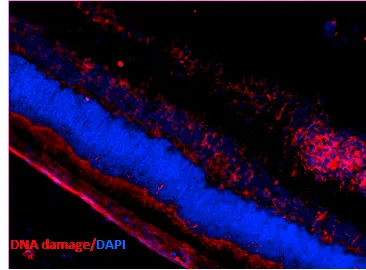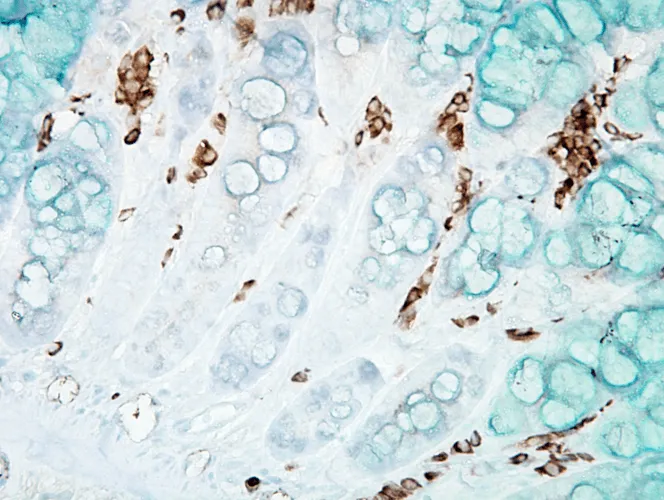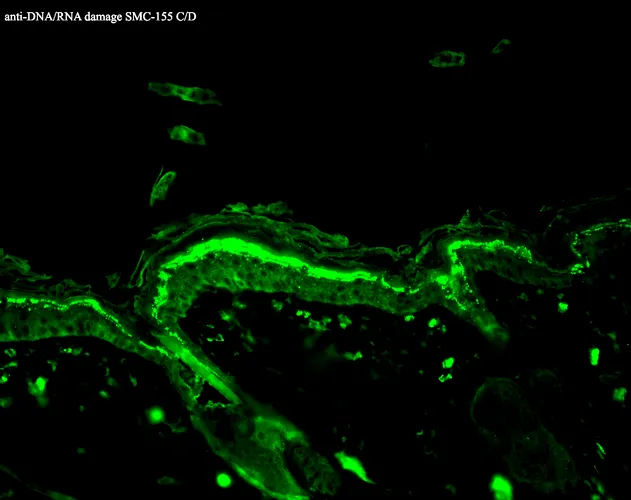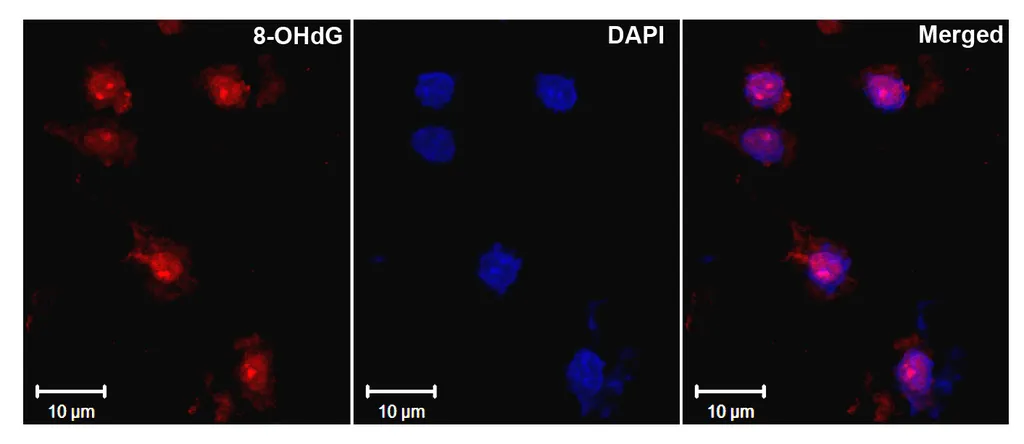DNA/RNA Damage Antibody: APC
CAT:
400-SMC-155D-APC
Size:
100 µg
Price:
Ask
- Availability: 24/48H Stock Items & 2 to 6 Weeks non Stock Items.
- Dry Ice Shipment: No










DNA/RNA Damage Antibody: APC
- Background: DNA or RNA damage is due to environmental factors and normal metabolic processes inside the cell, that then hinder the ability of the cell to carry out its functions. There are four main types of DNA due to endogenous cellular processes and they are oxidation, alkylation, hydrolysis and mismatch of the bases. During the oxidation of bases, highly reactive chemical entities collectively known as RONS, occurs. RONS stands for reactive oxygen and nitrogen species and includes nitric oxide, superoxide, hydroxyl radical, hydrogen peroxide and peroxynitrite. Numerous studies have shown that RONS causes a variety of issues including DNA damage(1). 8-hydroxyguanine, 8-hydroxy-2'-deoxyguanonsine and 8- hydroxyguanosine are all RNA and DNA markers of oxidative damage. 8-hydroxy-2'-guanosine is produced by reactive oxygen and nitrogen species including hydroxyl radical and peroxynitrite. Specifically its high biological relevance is due to its ability to induce G to T transversions, which is one of the most frequent somatic mutations (2). 8-hydroxy-guanine has been the most frequently studied type of DNA base damage, with studies in diabetes, and cancer. Base modifications of this type arise from radical-induced hydroxylation and cleavage reactions of the purine ring (3, 4). And finally, 8-hydroxy-guanosine, like 8-hydroxy-2'-guanosine, induces a mutagenic transversion of G to T in DNA. Its role has specifically been tested in the development of diabetes, hypertension and strokes (5, 6, and 7).
- Description: Mouse Anti- DNA/RNA Damage Monoclonal IgG2b
- Specifications: Recognizes markers of oxidative damage to DNA (8-hydroxy-2'-deoxyguanosine, 8-hydroxyguanine and 8-hydroxyguanosine).
- Product Name Alternative: 8-Hydroxy Guanine Antibody, 8-OH-dG Antibody, 8OHG Antibody, 80G Antibody, 8 hydroxyguanine Antibody, 8 hydroxy 2' deoxyguanosine Antibody, 8 hydroxyguanosine Antibody, 8 OHG Antibody, 8-OHG Antibody, 8OHdG Antibody
- Synonyms: DNA/RNA Damage Antibody, Clone 15A3: APC
- CAS Number: 9007-83-4
- UNSPSC: 12352203
- Host: Mouse
- Species Reactivity: Species Independent
- Immunogen: 8-hydroxy-guanosine-BSA and –casein conjugates
- Target: DNA Damage
- Clonality: Monoclonal
- Isotype: IgG2b
- Clone: 15A3
- Conjugation: APC
- Validated Applications: IHC, ICC/IF
- Purification: Protein G Purified
- Concentration: 1 mg/ml
- Dilution: IHC (1:1000); optimal dilutions for assays should be determined by the user.
- Weight: 0.1
- Buffer: 95.64mM Phosphate, 2.48mM MES and 2mM EDTA
- Precautions: Not for use in humans. Not for use in diagnostics or therapeutics. For in vitro research use only.
- References & Citations: 1. Kim H.W., Murakami A., Williams M.V., and Ohigashi H. (2003) Carcinogenesis 24(2): 235-241. 2. Pilger A. and Rudiger H.W. (2006) Int Arch Occup Environ Health. 80(1): 1-15. 3. Malins D.C. and Haimanot R. (1991) Cancer Res. 51(19): 5430-5432. 4. Kvam E. and Tyrrell R.M. (1997) Carcinogenesis 18(11): 2281-2283. 5. Kowluru R.A., Atasi L., and Ho Y.S. (2006) Invest Ophthalmol Vis Sci 47(4): 1594-9. 6. Bowers R. et al. (2004) Am J Respir Crit Care Med. 169(6): 764-9. 7. Cui J., Holmes E.H., Greene T.G., and Liu P.K. (2000) Faseb J. 14(7): 955-67.
